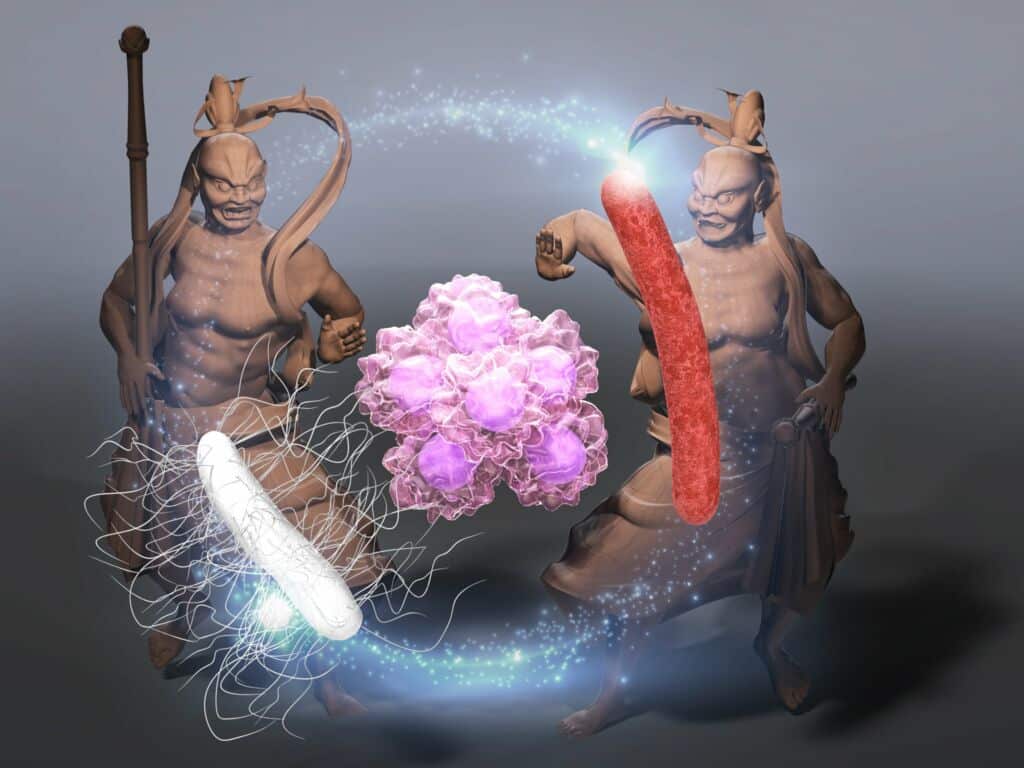Newsletter Signup - Under Article / In Page
"*" indicates required fields
Japanese researchers say it may be possible to treat cancer using bacteria that naturally reside within tumors to trigger a powerful anticancer immune response.
In recent years, interest in bacterial agents as anticancer therapeutics has grown, due to the ability of some bacteria to selectively grow inside hypoxic tumors, i.e., these cells do not receive rich oxygen supply. But bacterial anticancer therapies tend to focus on the idea of bacteria as a drug carrier, and use advanced and expensive scientific techniques like genetic engineering, synthetic bioengineering, and nanotechnology.
This makes it important to identify bacteria that are naturally effective and tumor-specific, thereby eliminating the need to employ advanced technologies to enhance their anticancer properties.
Intratumoral bacteria as anticancer therapeutics
For years, scientists have known that some species of bacteria grow naturally inside cancer tumors. So far, studies on these bacteria, called intratumoral bacteria, have focused on their role in cancer development or in their effects on other anticancer therapies, such as their ability to reduce adverse effects from chemotherapy, etc. The use of intratumoral bacteria as anticancer therapeutics is an underexplored area of research.
Recently, a research team, led by associate professor Eijiro Miyako from the Japan Advanced Institute of Science and Technology (JAIST), revealed that intratumoral bacteria that are associated with natural purple photosynthetic bacteria show strong anticancer efficacy. Their findings have been published in Advanced Science.
Miyako said: “We succeeded in isolating and identifying three types of bacteria from colon cancer tissues, Proteus mirabilis, which we have termed, A-gyo; photosynthetic Rhodopseudomonas palustris, which we have termed UN-gyo; and a complex bacteria that consists of both A-gyo and UN-gyo, which we call AUN. This consortium of bacteria, when injected into tumors, show a high antitumor effect.”
The researchers injected the three bacteria, A-gyo, UN-gyo, and AUN, into various mouse models of cancer. They found that these intratumoral bacteria can thrive in hypoxic tumor environments and trigger the immune system to kill the tumor cells.
Anticancer responses
Essentially, the association between A-gyo and photosynthetic UN-gyo in the form of AUN provokes strong anticancer responses in mouse models of colorectal cancer, metastatic lung cancer, and extensive drug-resistant breast cancer. Mice treated with these bacteria showed significantly prolonged survival rates. The anticancer efficacy of these bacteria was found even in mouse models that were treated with a single dose.
Another result from the study is the significant near-infrared fluorescence of AUN in tumors, indicating its potential as a tumor-specific diagnosis probe. The researchers also performed a variety of tests and assays to demonstrate that AUN has little effect on living tissue, i.e., it is biocompatible.
“Conventionally employed advanced anticancer therapies are extremely expensive,” Miyako said.
“The anticancer bacteria assessed in this study can easily be grown in large quantities at low cost in simple, sustainable, low-carbon processes. This would be a huge boost to the accessibility of cancer treatment worldwide.”
This study is the first of its kind and open the doors for further research on the field of intratumoral bacteria as anticancer therapeutics.
Oncology R&D trends and breakthrough innovations







